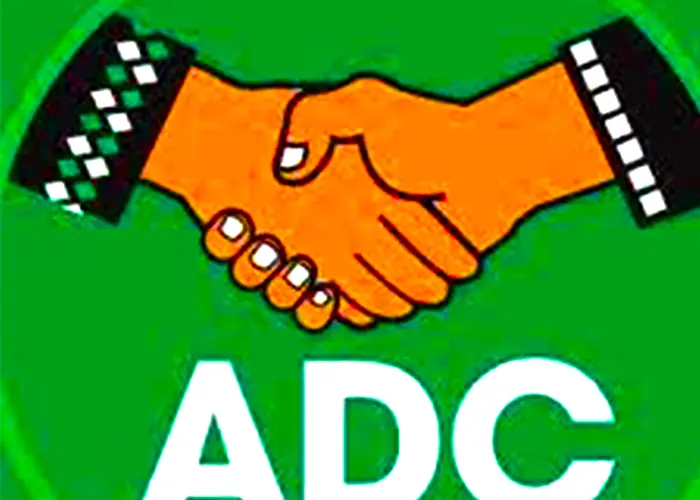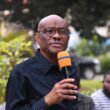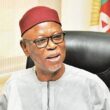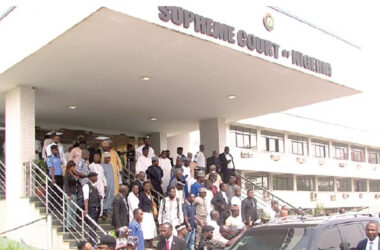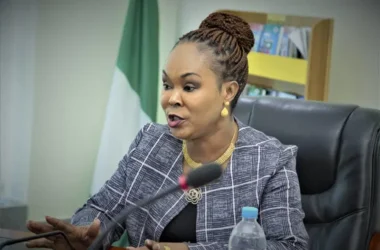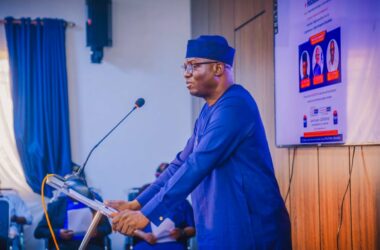Political strategists appearing on Inside Sources with Laolu Akande have advised the African Democratic Congress (ADC) coalition to steer clear of pushing a northern presidential candidate in 2027, suggesting that Atiku Abubakar and other prominent northern politicians should instead wait until 2031 to pursue their ambitions
Speaking during Sunday’s edition of the programme, Baba Yusuf, policy strategist and Group CEO of GITC, focused on how power-sharing and fairness will shape the ADC coalition’s appeal.
He was blunt in rejecting a northern candidate like Atiku Abubakar in 2027:
“My position with regards to, first of all, where the president should remain for the next, till 2031, has been very clear… the power should remain in the south.”
Yusuf argued that true unity, equity, and justice must be demonstrated in practice rather than rhetorical slogans.
“We want to, in action, in this position, in character, promote this, quote-unquote, unity, equity, and justice,” he said, warning that ignoring these values only deepens Nigeria’s ethnic and religious polarisation.
He acknowledged Atiku’s democratic rights under the constitution but insisted fairness should prevail:
“If ADC wants to win election in 2027, in my own humble opinion, one of the key things to deal with in the next four weeks or five weeks is to give clear direction with regards to that position, to say presidency is going that way.”
Mojeed Dahiru, columnist and technical member of the Lux Terra Leadership Foundation, argued that while the ADC coalition approach could potentially challenge the current two-party hegemony, it still lacks the ideological clarity and policy distinctiveness needed to energize voters.
“Ours is to set an agenda for all of the players in the party because we want an improved democracy,” Dahiru began, highlighting how Nigerians are grappling with hunger, insecurity, and general economic hardship.
He pinpointed what he considers the roots of these problems: “Two policies of the present government, two policies, two policies, appear to be at the root cause of the current economic challenges — subsidy on oil and petrol, and the devaluation of the currency through flotation.”
Dahiru argued that the floating of the naira, while aimed at tackling multiple exchange rates, triggered a severe devaluation, worsened by the removal of petrol subsidies, leading to high production costs across the economy.
“Now, two years is enough to appraise a policy, to now realise, if this policy wasn’t actually right in the first place, I’m going to take a detour,” he advised.
He said it was clear the current administration had “doubled down” on the same policies despite their failures, warning that opposition parties cannot afford to repeat the ruling party’s mistakes.
“I would expect that this opposition now, in these two years, should have been taking stock of these two policies. And by now, in the next few weeks, should come up with an alternative that is a clear-cut one to what this man has done,” Dahiru challenged.
He cautioned that unless the opposition coalition presents a bold, credible alternative, they risk appearing indistinguishable from the government:
“If you’re not going to be as frontal as that and make the commitment in the opposite direction, why would I want to edit a vehicle that is going to the same direction just to enter your own vehicle if there’s no change of direction?”
Dahiru warned that voters will not sacrifice under harsh conditions to support a party offering “nothing new,” describing that as a potential “albatross” for the opposition.
He urged opposition figures to wear their “thinking caps,” reminding them:
“Nigeria is a 26-year-old democracy, an adult democracy… you must be sure of what you want to do.”
He noted that figures like Peter Obi have injected a fresh sense of hope into the opposition space, but cautioned that this support must be nurtured with policy alternatives:
“For that public support to be sustained, expanded, and if possible, enlarged, we need to do the things we’ve talked about… Problems of underperformance create an opportunity for the opposition to thrive because you can now leverage on that,” Dahiru noted.
Yusuf added that the opposition must show real change beyond slogans:
“Secondly, to also demonstrate like what Mr Mojid said, that they are born again, if it is possible,” acknowledging that entrenched elite privilege makes reform difficult.
Yusuf lamented the generational hold of Nigeria’s political class, which he described as a “perpetuation of aristocracy,” warning that the children of current politicians are already entrenched across the National Assembly, executive, and judiciary.
He forecast that this “class suicide” might only occur if their greed and desperation push them into destroying themselves.
Turning to the leading opposition hopefuls, Yusuf was unsparing in his demands:
“I will not expect in the next six months for them to start providing solutions. Each and every one of them was a presidential candidate or presidential aspirant. And clearly we heard them saying they had a blueprint. Where is the blueprint? Demonstrate to us that as of 2023, you had the solution to the Nigerian problem.”
As the 2027 race slowly gains momentum, the debate on Inside Sources captured a growing sentiment among experts: the opposition coalition must move beyond talk and present a radically different, people-centred policy framework — or risk becoming a mere footnote in Nigeria’s troubled democratic evolution.





